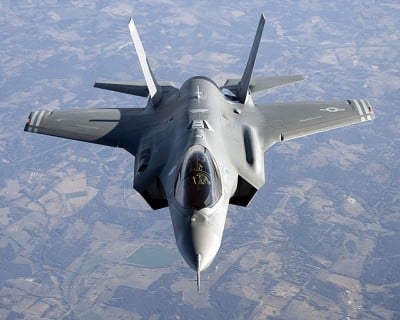Peace is the Enemy of the US Military Industrial Complex

War is a criminal act against the humanity. The fundamental question is who may benefits from the present potential military conflict in the Ukraine?
The citizens of the Ukraine, Europe, Russia, or the USA would not benefit. Some people in the Ukraine may benefit. The European Union is facing such severe economic and social problems that its search for other burdens would be rather surprising. Russia needs economic and political stability to again be respected as a world power. The USA is ending two rather long wars – in Iraq and Afghanistan. Would our country be eager to get involved in another military conflict that again might not be very successful?
The USA is the World’s foremost military power. Its military budget represents about 50 percent of global military expenditures. The US military has spent trillions of dollars since the end of the Second World War. Despite these huge expenditures, it cannot claim any major victories. The Korean War ended in a tie. The USA was defeated in Vietnam. It has been searching for some ending of the wars in Iraq and Afghanistan without being able to claim true victories.
The USA really did not have to get involved in those wars that solved nothing. US citizens did not benefit from those wars.
A hidden Agenda? There had to be some reasons for conducting those wars that killed many people, destroyed properties, wasted resources and taxpayers’ money. One should recall the words of President Dwight D. Eisenhower (January 17, 1961):
“Until the latest of our world conflicts, the United States had no armaments industry. American makers of plowshares could, with time and as required, make swords as well. But now we can no longer risk emergency improvisation of national defense; we have been compelled to create a permanent armaments industry of vast proportions. Added to this, three and a half million men and women are directly engaged in the defense establishment. We annually spend on military security more than the net income of all United States corporations.
This conjunction of an immense military establishment and a large arms industry is new in the American experience. The total influence — economic, political, even spiritual — is felt in every city, every State house, every office of the Federal government. We recognize the imperative need for this development. Yet we must not fail to comprehend its grave implications. Our toil, resources and livelihood are all involved; so is the very structure of our society.
In the councils of government, we must guard against the acquisition of unwarranted influence, whether sought or unsought, by the military-industrial complex. The potential for the disastrous rise of misplaced power exists and will persist.”
The fact that military activities may become a profitable enterprise leads to the realization that peace is the main enemy of the military-industrial complex. A simple metaphor can illustrate this problem. Grape growers, the wine industry and wine marketers would be completely out of business if people stopped drinking wine. In a similar way, the military-industrial complex would be put out of business by lasting peaceful conditions because the development, production, marketing and use of military equipment would be not needed.
To stay in business, this complex needed the wars in Vietnam, Iraq and Afghanistan, the “cold war” with the Soviet Union, war on terrorism and various other wars. And it needs to be involved in new conflicts, such as in Ukraine at this time.
Recent political activities in the Ukraine can be viewed as an effort to start a new “cold war”, this time with Russia. It is not about reducing corruption in the Ukraine (there is plenty of corruption in western countries as well). It is not about improving democracy in the Ukraine (the same need exists in western countries as well). It is not about improving economic conditions in the Ukraine (the same need exists in western countries as well).
The main objective of Western activities in the Ukraine is to provoke Russia and to transform a sensitive peaceful coexistence into a new “cold war”. Everyone could have expected the Russian reaction to the effort of placing NATO forces on its borders. This would be the equivalent of placing Soviet missiles in Cuba. Kennedy’s government had to react in October 1962. Putin’s government has reacted now.
Peace is a hope of a great majority of people. It could be enhanced if government expenditures would support business companies producing renewable energy, clean water and other life supporting products, rather than products bringing death.
Vashek Cervinka lives in Davis, California. He is an author of the book Questions We Have Forgotten to Ask and many essays published in the local newspaper. He can be reached at [email protected].

